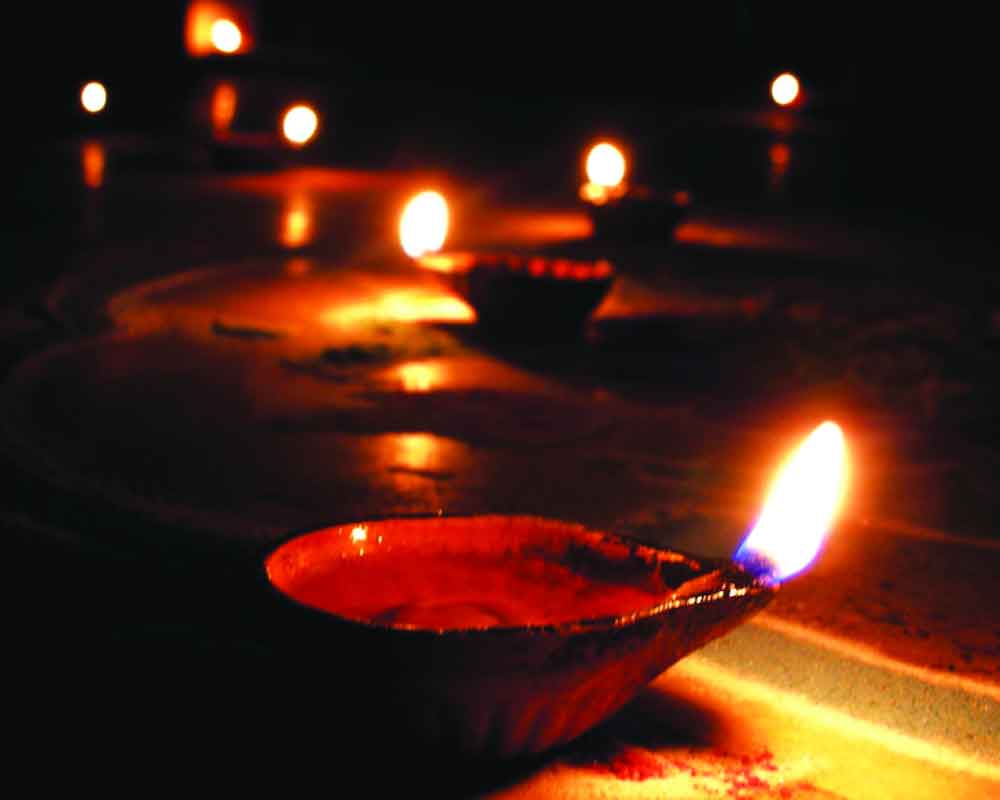As we celebrate Deepavali/Diwali, greetings and best wishes pour in as people exchange social pleasantries. However, there is a subtle but noticeable change in the way people do it now. The traditional expression was to wish a happy and prosperous Diwali. Slowly, there has been a change. A new kind of expression is now in vogue. More people are wishing a safe and peaceful Diwali to one another. Is this a mere change in style? Or do we read a deeper concern which is bothering the unconscious that is being manifested? Difficult to judge at this stage but one thing is certain, the gaiety and fervour of Diwali is not of the same degree as it used to be. A kind of despondency is taking over the spontaneity of the festive mood as concerns grow about shape of things that exist and that are expected. A rather paradoxical state. Human productivity, potential and ability is rising. Millionaires joining billionaires’ club are also rising. GDP, growth rate, per capita income and other such indices that project economic well-being and development are also consistently rising. But amid all these heartening pieces of statistical data, there has been a rise in the discontentment level of humanity at large. And this is not just an assumption. The news of disharmony in the society, the stories of discord, growing violence, rise in aggressive behaviour, increasing number of youth in self-destruction mode, higher suicide rates all portray a different picture. There is a need to think why hate crimes are becoming societal trend these days. Despite a growing tribe of economists, misery and want continue to bother humanity globally and locally. There was a Nobel Prize with Indian connection for scientific research and experimentation on poverty alleviation. A little over two decades ago, there was another one. And way back in early seventies, there was one more. However, the attempts in tackling misery and poverty still do not seem to be making much headway. For a country that has been religiously worshipping Laxmi, the Goddess of wealth for ages, this must raise a concern and an answer must be found out. Maybe, there is something wrong with the model we have been relying on to alleviate poverty and it needs to be redesigned. Perhaps, because solutions that are not working will not work. Econometric models rely excessively on mathematics but poverty is more a problem of sociology. One weakness in our over mathematicised solutions to socio-psychological issues is the excessive reliance on the unitary method based models. In our school days, we were taught that if 10 people can do work in 20 days, 20 people can do it in 10 days. But the question is will they do it? This gap between ‘can’ and ‘will’ has to be filled. And it calls for a change in approach. As we become more and more “me” centric the problems of the society are growing. There is time to change from “me centric” to “we centric” approach. From trickle down to share across models of development. Of course, such models will involve more of psychology than economics. And yes, worshipping Saraswati along with Laxmi will make more sense. But that can be a prescription for happy Diwali.
Pathak is a professor of management, writer, and an acclaimed public speaker. He can be reached at ppathak.ism@gmail.com

























